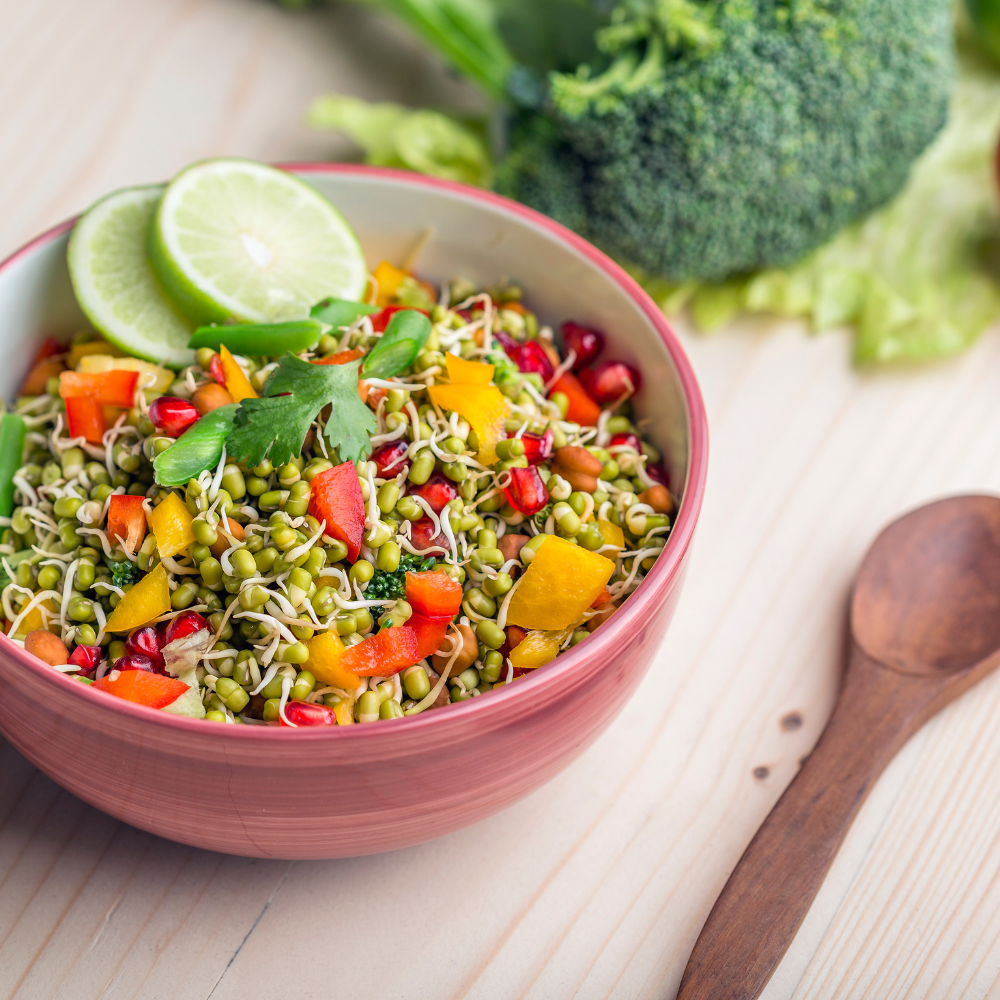
The major nutrients in sprouted beans and seeds are B group vitamins, especially thiamine, and some contain small amounts of minerals including iron and potassium. Sprouts provide a range of phytonutrients, varying depending on the type of sprout.
Cruciferous vegetables such as radish and broccoli sprouts are good sources of the body's most important antioxidant, glutathione, which is produced by the liver and can neutralize free radicals. Broccoli sprouts have also been used in studies to demonstrate the potential anti-viral properties of the sulforaphane compound they contain.
The sprouts of mung beans, chickpeas, and lentils have a high protein content (21-28%) and are a good source of calcium, phosphorus, and certain vitamins such as vitamin C, which increases during the sprouting process. Sprouted pulses are more easily digested without the common side effects of bloating and gas.
Soaking and sprouting seeds is shown to reduce the levels of both tannins and phytates, which is why it is also beneficial to soak other plant foods such as nuts, beans, and grains. Sprouted seeds have a fantastic nutrient profile, high in vitamins, minerals, protein, and fibre while being low in fat and carbohydrate.
Overall, adding sprouted plant foods to our diet is a simple, inexpensive, and delicious way to boost our nutrient levels. They are best eaten raw in salads, wraps, and smoothies but may also be lightly steamed, added to stir-fries, soups, and stews. Sprouts are widely available in supermarkets, but the sprouting process only takes a few days and is simple and cheaper to do at home. If you are new to the process of sprouting, try alfalfa seeds as they are very easy to sprout and are a lovely, mild addition to salads and other dishes


Information in this blog post is taken from other published articles and re-written for this informative blog.





